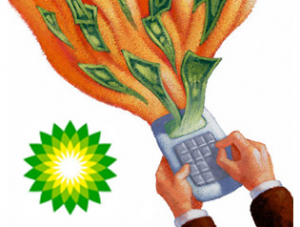
The Wall Street Journal reported on August 10, 2010 that the Obama administration was close to sealing a deal with BP that would make the U.S. business partners with BP’s operations in the Gulf of Mexico. The idea is that the U.S. would take as collateral a security interest (like a mortgage) in BP’s future oil and gas revenues from Gulf operations for the $20 billion that BP promised to put into escrow. Should that happen, the U.S. Treasury would have a direct financial interest in the success of BP’s oil exploration and production activities in the Gulf until the entire $20 billion is deposited in the escrow fund.
We do need BP to remain solvent to fund the escrow account, but what the Journal reports is a bad idea which will, if implemented, cast a shadow on the legitimacy of future regulatory activity in the Gulf by the Bureau of Ocean Energy (formerly the Minerals Management Service), NOAA, and every other federal agency charged with watching over BP’s Gulf operations.
You may recall that one of the criticisms of MMS was that it had an inherent conflict of interest because it was charged with regulating the same oil companies that it depended on for royalty income. Department of the Interior Secretary Salazar split up MMS into three separate agencies, in part to deal with this conflict issue.
If anything, the potential new deal described in the Journal today is worse because it revives the regulatory/royalty conflict plus it makes the federal regulators subject to claims that they are favoring BP over other oil companies in the Gulf in order to fatten up the BP escrow fund.
There are other ways to make sure that BP lives up to its $20 billion promise. BP has worldwide operations and the Administration could take as collateral cash flows from assets that the U.S. doesn’t regulate. Or BP could post letters of credit and let its merchant banks worry about which assets to use as collateral. But going into business in the Gulf with the oil company that the government has named as responsible for the worst environmental disaster in U.S. history creates more problems than it solves.
This post originally appeared on NRDC's Switchboard.
David Pettit is Director of NRDC's Southern California Air Program. The National Resource Defense Council is a non-profit organization dedicated to protecting the environment, people and animals. NRDC was founded in 1970 and is comprised of more than 300 lawyers, scientists and policy experts, with more than one million members and e-activists.

